Labor positions
There's no one position that's best when you're in labor. Trying different positions throughout labor can help you cope with the pain and feel more in control. Some research suggests that certain positions may be useful in moving labor along. And as labor goes on, switching positions can make you feel more comfortable. With some positions, you can involve a labor partner. Doing that may give you and your partner a sense of connection during labor.
Keep in mind that if you use certain pain relief medicine, you might have to stay in bed or be in a specific position. If there's something you want or don't want regarding positions during labor, tell your health care team and anyone else who may be with you during labor.
Standing, walking and swaying
Standing or walking during the first stage of labor might make that stage go faster. Lean on a labor partner for support during contractions. You also can put your arms around your partner's neck and sway, as though you were slow dancing. This is a good position for a back rub too.
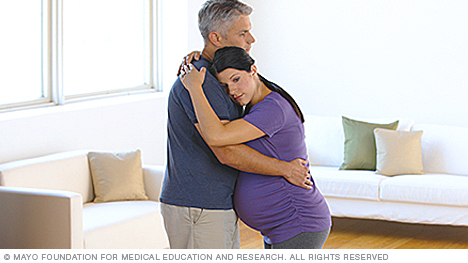
Rocking
During labor, rhythmic motions can be soothing. Gently rock while sitting on a sturdy chair, the edge of the bed or a birthing ball — a large rubber ball. Or use a rocking chair if you have one.
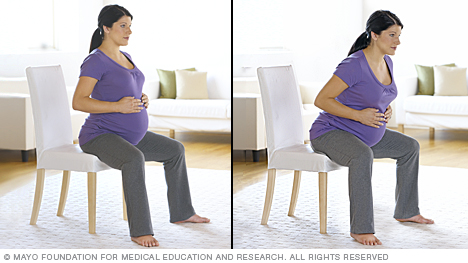
Leaning forward
If your back hurts during labor, leaning forward might feel good. Straddle a chair or lean over a table or countertop. This is another good position for a back rub.
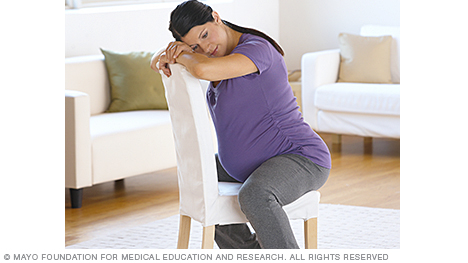
Lunging
Lunging can relieve discomfort in the lower back. Place one foot on a sturdy chair. Gently lean toward the raised foot. Hold it for a few seconds, and then go back. If a chair is too high for comfort, use a footstool.
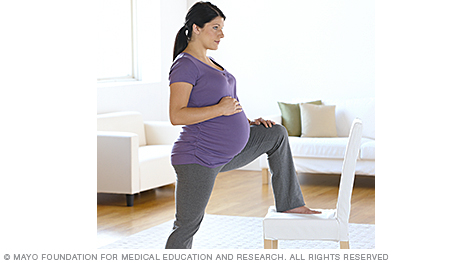
Kneeling
Sometimes kneeling helps ease back pain. Kneeling while leaning forward also can help open your pelvis. Use a birthing ball or pile of pillows for support. Or rest your upper body on a bed or chair.
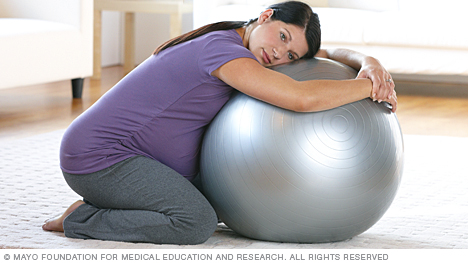
Squatting
Squatting helps open the pelvis. That gives a baby more room to rotate when moving through the birth canal. Squatting also might allow you to bear down more effectively when it's time to push. Use a sturdy chair or the squatting bar on a birthing bed for support. You also can squat against a wall.
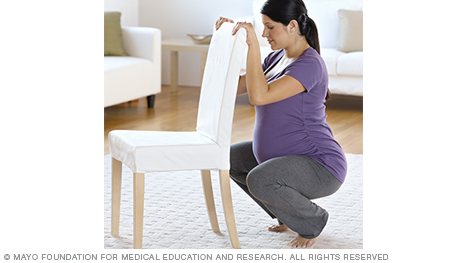
On hands and knees
Don't be embarrassed to get on your hands and knees during labor. Try it in bed or on a floor mat. You'll take pressure off your spine, which might ease back pain. Leaning forward in this position also can open your pelvis. A hands-and-knees position might boost your baby's oxygen supply too. To give your arms a break, lower your shoulders to the bed or floor mat and place your head on a pillow.
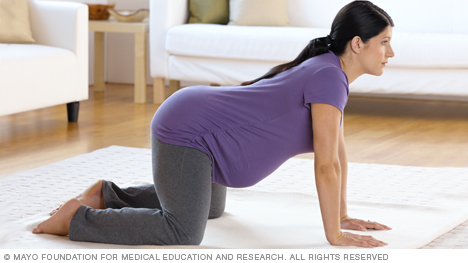
Lying on your side
To give yourself a rest in the first stage of labor, lie on your side. Keep one or both knees bent. Place a pillow between your knees for comfort. You also might put a pillow under your belly.
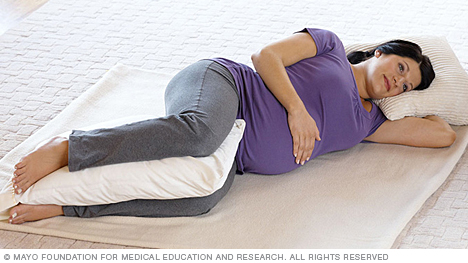
As you go through labor, use a variety of positions to help you feel comfortable. Talk about what you want with your health care team ahead of time. But try to be flexible. You might need to experiment during labor to find the positions that work best for you.
Last Updated Jul 28, 2023
© 2024 Mayo Foundation for Medical Education and Research (MFMER). All rights reserved. Terms of Use